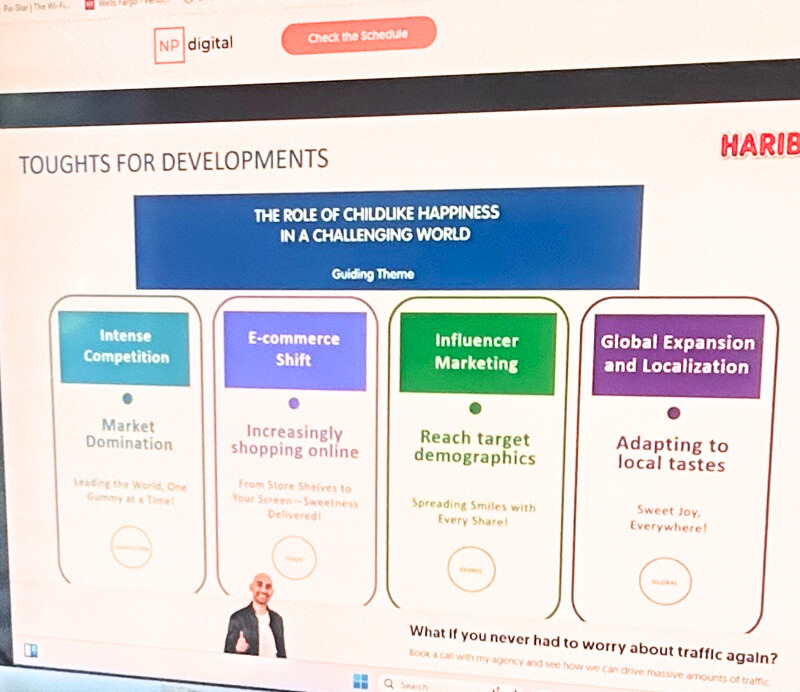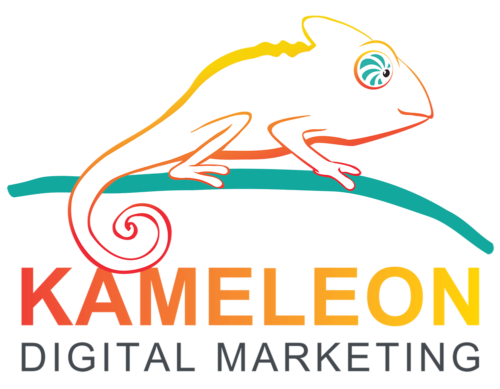What Can A Globally Recognized Italian Candy Company Teach Us About Brand Strategy?
Last week I have had the privilege of participating in a two-day marketing summit hosted by Neil Patel. One of the presentations I enjoyed the most was by Marco Piantanida, Haribo‘s Italian Managing Director. He basically shared with us Haribo’s marketing direction for 2024-26, as well as brand assets and other brand marketing thoughts and initiatives. His company’s main considerations are how to keep market domination, reach more customers by focusing more on e-commerce, adding influencers to reach their target demographic, and also how to consider people’s taste at the local market level. These are very specific marketing directives, would you agree? Your brand strategy will most likely look very different from Haribo’s, but how you approach your brand marketing strategy is essentially similar. Let’s break a Brand Marketing Strategy down to its most important components so you can also create your plan focusing on the what’s important to grow your business.

HARIBO BRAND STRATEGY CONSIDERATIONS 2024-26 (Source: The Future of Marketing Summit hosted by Neil Patel)
Paying for Ads for Short Term Success, Building a Brand for the Long Haul
In my years of experience as a web designer and marketing & brand strategist, I often see my small business clients and entrepreneurs associating their brand’s value with the desire for immediate action and response. Paying for services with measurable results, like pay-per-click ads, social media management, or campaigns, is usually appealing because you can track your return on investment. These immediate results can be exciting and fuel a fire when launching your business, mainly because it helps fund your products and services. All too often, businesses discover that maintaining a steady state of fuel is difficult with these methods. When the fire goes out, the effort to rebuild can be overwhelming and impact your customer relationships.
So, how do you keep your business fueled for continuous growth? The answer lies in developing a brand marketing strategy that reflects your unique value and serves as the foundation for both retaining loyal customers and attracting new ones. I always remind my clients to create a brand marketing strategy and grow their tribe for sustainable future success.
While making brand marketing strategy a priority may seem overwhelming, thinking of it as simply sharing your story can make the process less daunting. Ross Kimbarovsky, a branding expert from Cloud Spring, encourages brands to clearly define their values and distinct identities in the minds of their customers (source: https://www.crowdspring.com/blog/brand-marketing/) . This is great advice. Let’s explore ways for you to develop a viable brand marketing strategy to engage customers and build a thriving business now and in the future.
Core Components of Your Brand Marketing Strategy
- What is Your Brand’s Mission?
Your brand’s mission speaks to your purpose and the core values that guide your product or service offerings. When defining your brand’s purpose, think about what makes it special and different from other brands. What value do provide your customers and how does this make their life easier or more enjoyable?
For instance, Patagonia is known for selling quality outdoor gear and their environmental sustainability efforts. They went as far as telling customers not to purchase one of their top selling fleece jackets and buy used ones instead. The company dramatically increased revenue with their new used apparel line, deepened relationships with their loyal customers and gained new ones. They walked the walk—not just talk.
As Ross points out, good things happen when you have a clear and exciting reason for your brand. You can get people to stay loyal as customers, and you can also get people to stay loyal as employees. When an employee understands how their role supports the mission of the company you build a culture guided by value and purpose.
- Know Your Competitors
Knowing what other businesses in your area are doing can help you find new things to try, understand what people want, and see where you can do things better. Start by thinking about what you already know about your competitors. Then, try using tools like Google Analytics and keyword searches to find out even more.
Once you understand your competitors, you can see what makes your business different and what you can do to offer more value to your customers. For example, if your competitors only deliver things to your local area, maybe you could offer delivery to more places for an extra fee. Are there other things you could offer that customers can choose from to make their experience more personal?
I love this picture framing store because I can get custom frames for my special prints and photos. But online stores that sell prints and frames are usually cheaper. There were some things I wanted to frame that didn’t need to be custom. When the store started offering cheaper online options for standard frames, I started buying from them.
They saw what their competitors were doing, understood what I needed, and made my life easier by giving me a new option. This helped them sell more.
- Create Emotional Connections
When we feel a strong connection to a brand, it becomes part of our lives, and we tell our friends about it.
How does your brand’s story fit with your customers’ lives?
Think about the recent beauty campaigns that celebrate different people, different body types, and different skin colors. You might see yourself in their stories and think about how their products could help you.
Your customers should be able to see themselves and the value you offer in everything they do with your brand. This will help create a brand image that is real, trustworthy, and consistent.



